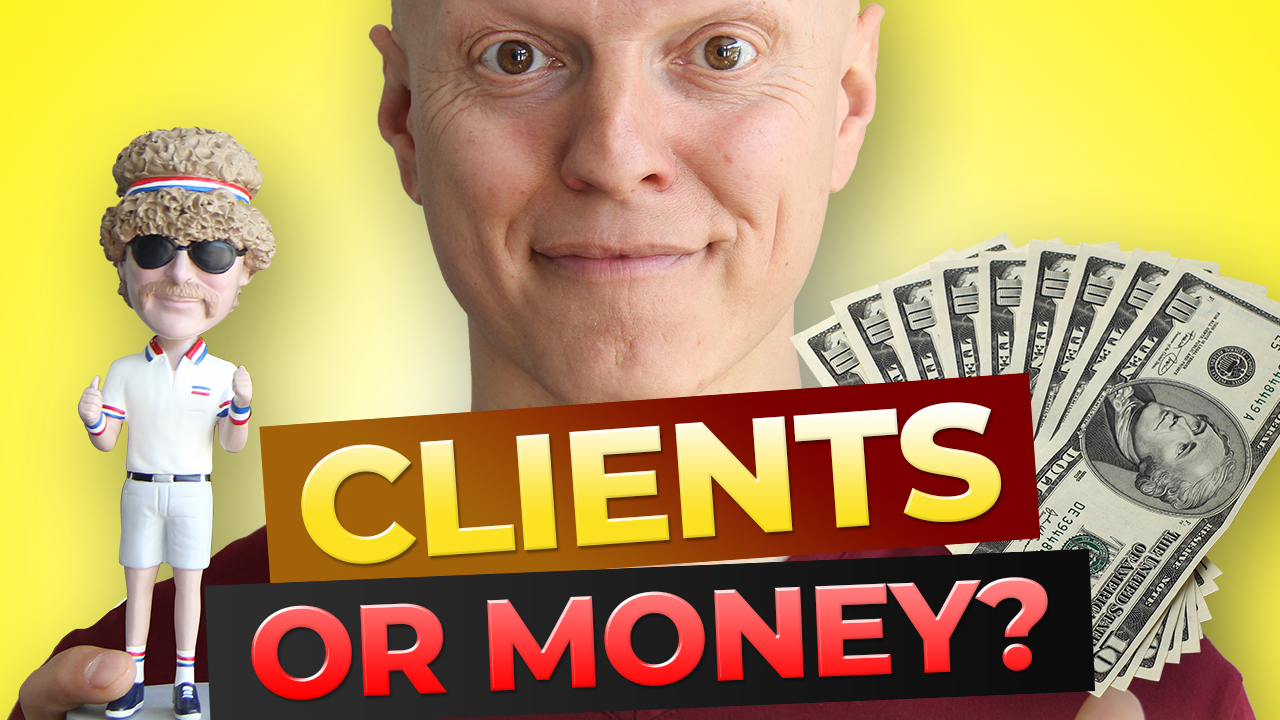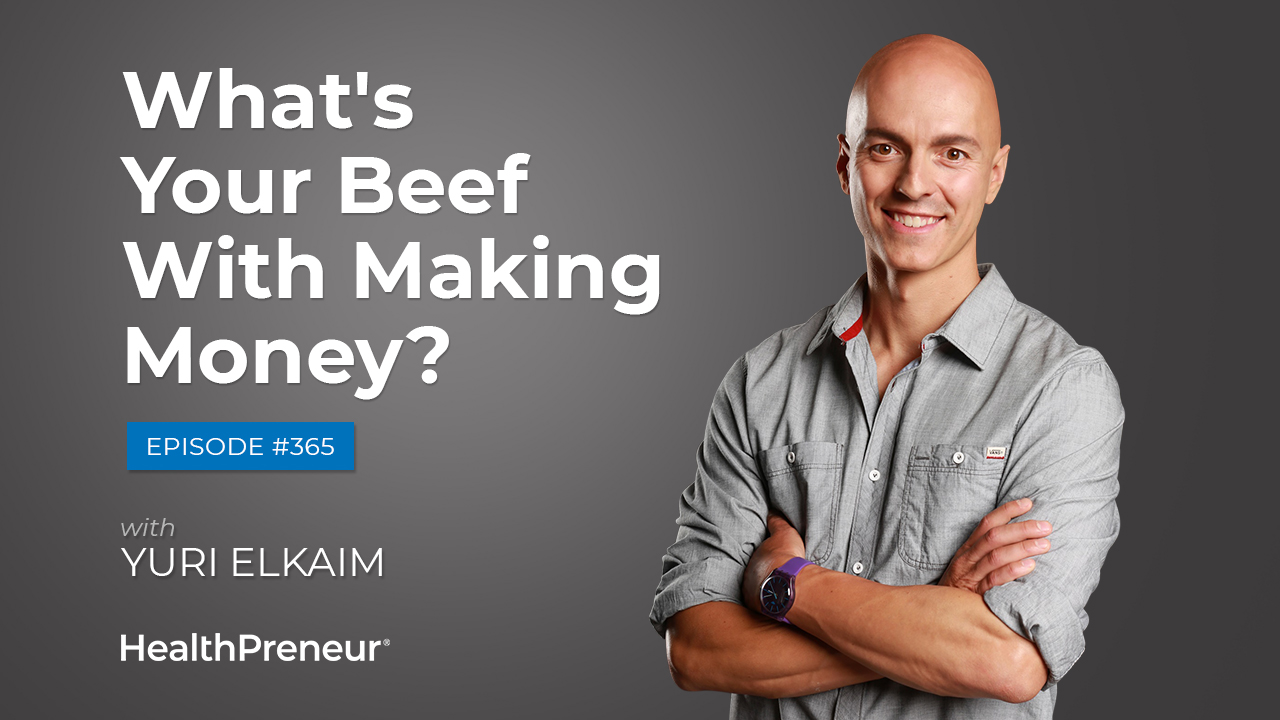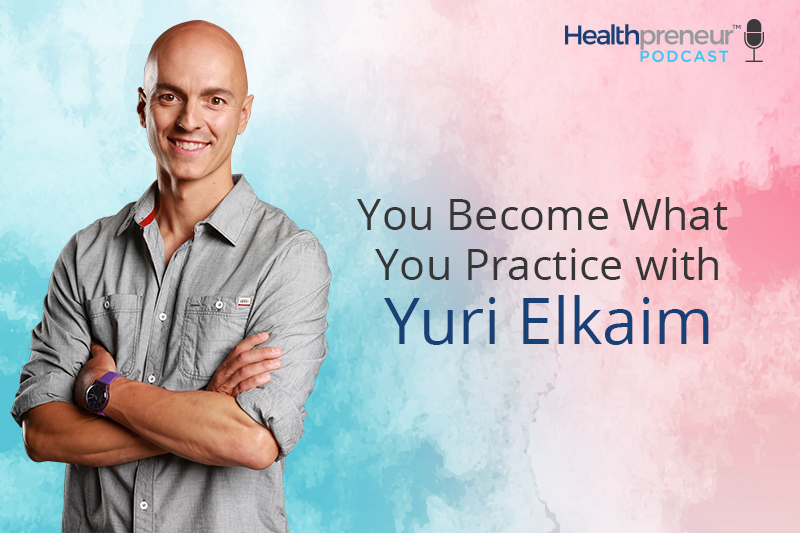What’s Your Big Idea? (And Why You Need One)
Today’s episode is the final episode of The Client Activator Scorecard series. So this is the ninth and last pillar.
In this episode I’m going to talk about Market Awareness. Along with Market Awareness, there is a level of increased skepticism, meaning, I’ve seen this before, what makes your program better?
This ties in with how you explain your coaching program, your messaging, how you differentiate in the marketplace.
This is where we get into The Big Idea. The big idea ties in with the magic. The Big Idea is what differentiates you in the marketplace.
Tune in to find out how to stand out in a crowded market place and get people excited to stand up and take note of your offer or service.
In This Episode I discuss:
02:00 – 05:12 – Market Awareness
05:12 – 22:31 – A Big Idea
22:31 – 16:50 – What Makes You Different From Everyone Else
16:50 – 22:31– Wrap Up With Yuri
Welcome to the final episode. You thought of the podcast, not quite my friend. Welcome to the final episode in The Client Activator Scorecard series.
If you’ve missed any of the previous eight episodes, go back and watch them or listen to them. It’s some good stuff I think, and if you want the scorecard, if you have no clue what I’m talking about, if you just tuned in for the first time, we’ve been talking about a really cool tool I’ve developed called The Client Activator Scorecard. It’s a two page tool that will help you assess your marketing, figure out where the leaks are, and give you the fixes so that your marketing becomes more compelling, people actually care about it, they respond to it, so you actually have higher conversions, more leads coming in, more clients paying you money, and obviously more money in the bank, but just as importantly, more lives transformed.
So we’ve been talking about the three pillars, market, message, magic, and the nine activators that fall within those. Today we’re talking about the final and the ninth client activator.
Market Awareness
I think this is probably, it’s tough to say if it’s the most important, but let’s just go with it, it’s the most important. Maybe, maybe not. It’s probably not the most important, but we’ll just say it is, but is not really, but it is. Anyways. Eugene Schwartz, famous copywriter wrote an amazing book decades ago called Breakthrough Advertising, and inside that book he talked about the sophistication of the marketplace and the levels of awareness of a marketplace. What he showed was that in a market that’s very sophisticated, there is a higher level of awareness amongst the people in it, and when there is more sophistication and thus awareness in a market, there needs to be an introduction of new mechanisms, new angles, new hooks, new big ideas. Let’s bring this down a notch.
If we look at the weight loss market, at the beginning of the 19th century, so the 1800s, was the weight loss market very sophisticated? The answer is probably no. I don’t think there were infomercials, I mean, there weren’t TVs, right? I don’t think there were gyms and personal trainers, and diet pills. I don’t even think it was top of mind for most people. 175 years later, it becomes a different story. So mid-20th century, so 1950 and forward, now we’re starting to look at advertising, radio commercials, TV commercials, billboard ads, magazines, Playboy, Penthouse. We’re starting to indoctrinating the culture of what we need to look like to be accepted, or loved, or attractive, and that leads into this whole cultural revolution of losing weight, or packing on muscle if you’re guy.
So what happens is over the next couple of decades, the pills come out, the potions come out, the workout programs come out, the diet books come out, the infomercials come out, the gyms pop up all over the place, the personal training business takes off, and where we are now in 2019, and when we look at the spectrum of sophistication, it’s very sophisticated, which means people have seen everything or a lot of it, right? You go to the bookstore, you feel overwhelmed with the number of diet books, which ultimately all say the same thing. You go to a gym that’s right next to another gym. There’s so much stuff. So when that happens, the level of skepticism increases in the marketplace because now it’s like well, here we go again, here’s another thing that’s probably just like the other thing that didn’t work for me. So there’s increased skepticism which is a really important thing I want you to remember, and when people have increased skepticism, what do they look for? Well there’s two things. One is social proof, that’s a real big driver of human behavior, but the second thing is a big idea.
A Big Idea
A big idea is you are introducing something new, different, or polarizing into the marketplace. So let me give you an example. I briefly mention this in the deep dive training that goes along with the scorecard. I drive a BMW M5. I love the car. I’ve had it for almost five years now. It’s an absolute beast. If you’re into cars, you know what I’m talking about, if you are not into cars, I won’t bore you with the story. So it’s an amazing car, there is no other car I would upgrade to other than getting into spots cars which doesn’t make sense because I’ve got a large family, so there’s no kid seats in two-seater sports cars, and I’m going to stick with this.
So I was at BMW recently because I had to get the air conditioning fixed in the car, it’s the only thing that’s really just broken down after five years, pretty good. Really simple fix. While I was there, I saw the new M5. I saw the new M5 on the trade floor, and I remember speaking to the sales rep and I said, “Can you sell me on why I should upgrade to this new M5? Please, try to convince me why I should get the new M5.” And he couldn’t, and he knew he couldn’t, and that’s a very big dilemma, okay? Because the only difference between my M5 and the new one was all-wheel drive, that’s it. I mean, I think there might be a tiny bit more horsepower, but really not. It’s actually got a more annoying dashboard, like the screen that pops up on the dashboard as opposed to be built in like mine is. I think that’s super annoying. The lines of the car exactly the same. The interior features are pretty much identical. The look and feel of the car is the same, so why am I going to buy a new car, which is marginally better if at all from my current one? And some may argue that newness alone is good enough, and I do agree with that. I do agree with that for some people.
I had a phone, and iPhone, I had an iPhone whatever, whatever the 6S, I think, whatever it was, and then my wife got me an iPhone X. I didn’t need the iPhone X but she got it for me for Christmas, I’m like, “Cool, awesome.” Now, there are people who will line up in the iPhone store even though their pockets are filled with previous iPhones that are fully functioning just to get the new one. Now, there’s obviously on the bell curve, we talk about like early adopters and the large majority, et cetera, I’m not an early adopter. I don’t care enough about stuff like that to need the newest thing, but I understand there are people that are like that. They want the new thing, even if the new thing is not that much better. But I’m going to play things safe and just assume that most people are not going to take action on something unless the new thing is substantially better, and this is important for you to understand because this is going to go back into how you explain your coaching program, your messaging, how you differentiate in the marketplace, because if you get on the phone with someone and you introduce a program to them that’s $5,000 and they’re thinking to themselves, “Well I spoke to someone else and their program was half the price.” Or, “I did this workout program that’s $97, why is this better?”
Okay, you have to know how to answer that question, and not just the fact that it’s new, right, but you have to understand how to position this in terms of features, advantage, benefits, et cetera. I’m not going to go into details about that right now.
Coming back to the big idea. The big idea ties in with the magic, right? Which is essentially the offer, the promise you’re making to the marketplace. It can be free or it can be paid. So your coaching program should have some degree of newness, differentiation or polarity that is going to get people to really take note. As an example, I’ll give you an example of Health Business Accelerator. It’s our core program, we help hundreds of clients through the program. The promise is helping you add $10,000 or more per month within three to six months, and have a very predictable way of getting clients to help you do so. Now, does everyone get that outcome? No, because it’s obviously depends upon them, but that’s what the program is built to do, and we’ve done that with countless clients already.
So that’s the highly desirable tangible result. Now, here is the big idea. The big idea is that it’s a simple four step system that does not revolve around social media, no content marketing, and zero word of mouth, which are three of the big things that are sucking away people’s soul when it comes to building their business. So the big idea here is that we don’t do any of that nonsense. So our big idea is kind of polarizing and different from what every other business coach is doing out there. Now, the other way that we differentiate is that we’re really the only people in the health and wellness space, I shouldn’t say the only because there’s probably someone popping up right now as I’m saying that, but there are other training and coaching companies that do similar stuff to what we do, but we’re the best in the health and wellness space. So we decided to only focus on a single target market being health and fitness coaches. So that’s to give you a bit of context around our big idea, okay?
What Makes You Different From Everyone Else
Now if we look at a free thing. So let’s say you’re offering a free webinar. A free online presentation for people to attend. What’s the big idea? What’s the hook? What’s the angle? What’s going to get people excited to jump in and do this? Because remember, in a marketplace that is very sophisticated, what was that word I said? Remember that word? There’s increased skepticism. Oh, here’s another. If I could show you the comments on my Facebook ads, you would feel sorry for the human race. It is absolutely disgusting what some people with their name and profile, publicly, visible, and clickable right there will say about me, or my approach, or anything in our comments on those Facebook ads. I’m like, “Man, you’re really like bottom feeders.” It’s really sad that you would take a moment out of your day to write something as deplorable as that. But the thing is everyone, like people have seen oh my god, here is another business coach saying the same shit. I just want to punch you in the head. I hope you get burned at the stake, like ridiculous stuff, okay.
People get pissed off because they’ve been burnt before. So that’s the reality of living in a very sophisticated marketplace where people have seen stuff forever, right? So you need to be able to introduce something to the market that is going to get them to think, “Wow, this actually seems very different. This seems new.” Or it’s polarizing. I’ve got a video ad running right now, and it’s just one minute, and it’s just me ranting about why you deserve to be rich. Why you deserve to be rich. It’s polarizing because there are people that apparently believe that I said, “Listen, being poor isn’t serving anyone. Being poor isn’t noble. Being poor is selfish.” It’s very polarizing stuff to say. To people who don’t have money it’s like, you should see some of the comments, and I don’t care because I really believe it to be true. I’m not going to get into the whole rant about whatever, but what I’m saying is if you want to stand out, your stuff has to be new, different, or polarizing, and that basically means you have to introduce a new big idea. So when we came to the market with HBA we had to look at how are we going to get people into HBA, and that’s why we have our perfect client pipeline, Facebook ad, webinar, phone call.
Our webinar just can’t be a webinar. It can’t just be like, “Hey, watch this thing.” Cool, thank you. We had to introduce some degree of big idea that was going to be interesting, unique, different, and that’s where we came up with the perfect client pipeline, the four step blueprints that doesn’t revolve around anything else. The old way of building a business online is dead, which is all that stuff I mentioned. The social media, the content marketing, all that stuff. Now, is it dead? No, it’s not because some people do very well with that, myself included. 270,000 subscribers on YouTube, a million visitors per month on my blog. I’d way we’ve done pretty well with that stuff, but what I am saying is I’m taking a stance that for most people to do that is, like it just doesn’t make sense, because I’ve been down that road and I see what it entails. It doesn’t make sense for most businesses to do that, especially in 2019, and especially if you’re relatively new.
So the big idea comes at every level of your marketing. From your Facebook ad where you’re introducing a new discovery or a new solution you came upon, to what you disclose in your webinar, or in your lead magnet, or whatever it is you’re offering, to your phone call, if you’re getting people on the phone, which you should be if you’re selling something higher ticket, into your coaching program. The whole way through there needs to be a newness, differentiation, something that is going to get people to stand up and take action, and the reason a big idea is important is that we go back to that word I mentioned earlier which is called skepticism. They’ve tried everything else, nothing has worked. So this is bullshit, this is another one of those scams, whatever. But for a lot of people what a big idea introduces is a four letter word that doesn’t rhyme with duck. I’ll let you think about that for a second.
What it does is it introduces hope, and we are selling hope. Ultimately we’re selling certainty of an outcome, but what we’re doing is we are selling hope to people who’ve been burnt before, to people who have not been able to succeed with what they’ve done before, and when you introduce something new to the market, a big idea, it gives them hope because now this is the thing they might be thinking to themselves. In the back of their mind they might be like, “You know what? This is full of shit, this guy is a scammer, but you know what? Maybe, just maybe this is the thing. This is the thing. This is what I’ve been waiting for.” That’s the conversation that’s happening in their mind. Now, they’re not talking about this with their friends, this is happening in their mind. This could be the thing that gives me the thing I’m looking for. Let’s see what this is all about. Okay, cool.
Wrap Up With Yuri
That’s what a big idea is going to do, and that’s why it’s important to have a big idea, because if you don’t have a big idea, then you’re the same as everyone else and your offer is the same as everyone else. You’re bringing more vanilla ice cream to an ice cream parlor that is full of vanilla ice cream, and what you need to do is you need to infuse some chocolate ice cream in an ice cream parlor that is filled with vanilla ice cream so that when you … Just think about this. Just visualize this for a second. You go to an ice cream shop and there are 30 flavors, or 31 flavors, it’s called Baskin-Robbins. 31 different vanilla ice creams, or let’s just say they’re all the same. 30 vanilla ice creams, and then you’re looking through the glass and then you see that one tub of chocolate. Which one do you think is a bit more exciting? If you said the chocolate, you’re right. Even if you don’t like chocolate. Why? Because it’s different, it’s new, it stands out, and that’s what a big idea does for your business. Okay.
I hope this makes sense to you, and if you don’t, if it doesn’t make sense, listen, we’ve talked about this for 17 minutes. This takes time. It takes time, it takes guidance, it takes coaching to really get this stuff dialed in. It really helps if you have someone look at your business. Look at your offers and be like, “This makes no sense. This sucks. This isn’t going to convert.” To making it better, and that’s what we do every single day with our clients. So if you don’t have the scorecard yet, get the scorecard, healthpreneurgroup.com/scorecard. Once you’ve opted in you can download it, you can type directly into the PDF or print it out, whatever you want to do.
Included with that is a free bonus deep dive training called The Client Activator, where I’m going to walk you through all nine activators in 60 minutes. I’ll show you what the problems are, how to fix them, how to make yourself more compelling by stuff, I mean your marketing so that people respond to it, they opt in, they pay you money, you get more clients, all that good stuff that you want. So that when you initially said, “I want more traffic.” Or, “Want more people looking at my stuff or buying my stuff.” What you’re really saying is I want more clients and more money. We fixed this conversion piece, and then you will get more traffic than you can handle. You will have more people knocking on your door than you’ll know what to do with, but everyone’s got this backwards. They’re like, “I want more people coming to my site.” Well the reason you don’t have people coming to your site is because your stuff sucks and no one cares about it, and I say that with all the love possible, okay? I’m here to serve you, I’m here to get you thinking differently, because if you don’t, you’re going to struggle, and I don’t want you to struggle, okay?
So get the scorecard, healthpreneurgroup.com/scorecard. I hope you’ve enjoyed this series. We’ve talked, we’ve had nine episodes now on this. If you’ve missed anything, just go back over the previous nine episodes and just go back through this stuff, and if you want our help, hey, we’re happy to do that as well. That’s all for me today.
So over the next couple episodes we’re going to be bringing back some deep dives. We’re going to get some people that are not clients coming back onto the show. Actually not coming back, coming onto the show. I have no clue who they are other than their name. I don’t, I’m not going to be, they’re not going to be promoting a book or anything. It’s like, here is where I need help in my business, and let’s spend 25 minutes to figure this out. So listen, I charge $2,000 an hour for consulting. These individuals are going to have a free 25 minute consult on the podcast. You’ll get to listen in, kind of like a fly on the wall, and I recommend you bring a pen because we’re going to have some really cool breakthrough. I’m not going to hold anything back. I’m going to give my best stuff in these episodes. We’ll probably release one every week, usually on Fridays, so stay tuned for that. It’s going to be a lot of fun.
If you want to be guest on the show, then yeah, just make sure you’re on our email list because that’s how I announce it. So in order to do that go to get the scorecard and you’ll be put onto our email list, and that should take care of that. Okay. So there it is. Scorecard. We have officially come to the conclusion of The Client Activator Scorecard. I’ve had fun bringing this to you. Hopefully it’s made some sense, and there we go. So I’m going to stop talking now. Hope you have an amazing day. I’ll see you in the next episode, and see you then.
If you enjoyed this episode, head on over to iTunes and subscribe to Healthpreneur™ Podcast if you haven’t done so already.
While you’re there, leave a rating and review. It really helps us out to reach more people because that is what we’re here to do.
What You Missed
In our last episode we talked about the second activator in the magic pillar. This is our eighth of the nine client activators, andit’s a tangible result.
People are interested in the outcome. They could care less about the means to getting there.
And that’s the magic of selling tangible results.





